Exploring the Link Between High Blood Pressure and Heart Disease
Blood pressure readings are not just a measure of your current health, but can also indicate if you’re at risk for developing heart disease.
High blood pressure (also called hypertension) is common yet may have no signs or symptoms and you should always remember that high blood pressure can cause serious health complications when left untreated.
In this post we’ll look at the correlation between high blood pressures and coronary illness in detail - from causes to prevention tips – so you’re more informed about how to protect yourself from risks associated with heart problems caused by elevated levels of blood pressure. If you are worried about your heart health, visit our renowned cardiology hospital in Dubai & get a complete heart health checkup.
Key Takeaways
- High blood pressure can lead to various types of heart disease, such as hypertensive heart disease, coronary artery disease and heart failure.
- Risk factors for developing high blood pressure and heart diseases include modifiable lifestyle habits like a balanced diet and regular exercise. Non-modifiable risk factors are age, family history & coexisting conditions.
- Long term effects of high blood pressure & heart disease can be severe - cardiovascular events, chronic kidney damage & cognitive decline, making it important to take proactive steps towards managing health.
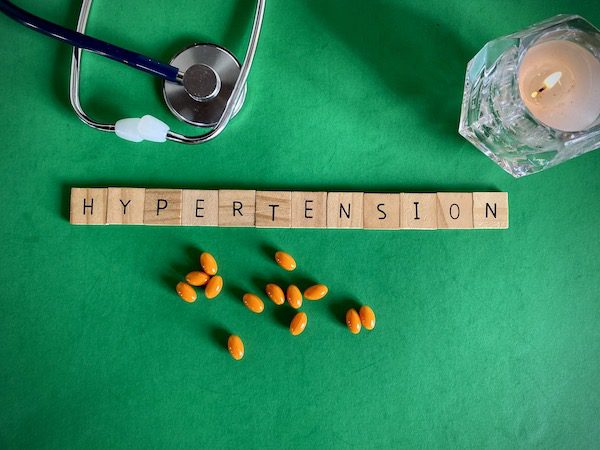
Understanding High Blood Pressure
High blood pressure has a huge impact on arteries, raising the risk of heart disease. When it is sustained over time at an elevated level, damage to vessel walls can occur leading to cardiovascular conditions like hypertensive heart disorder, coronary artery issue and cardiac failure.

High blood pressure has a huge impact on arteries, raising the risk of heart disease. When it is sustained over time at an elevated level, damage to vessel walls can occur leading to cardiovascular conditions like hypertensive heart disorder, coronary artery issue and cardiac failure.
Checking regularly for any abnormal changes in your blood pressure is essential as this helps detect potential problems early so they may be managed quickly before they cause serious harm from heart disease such as these mentioned above.
Primary hypertension and secondary hypertension are two main categories that categorize high blood pressure cases which we will now discuss further to better understand their distinctions.
Primary hypertension
High blood pressure is the most frequent type of hypertension, having no known source. This may be caused by cholesterol accumulation in arteries (atherosclerosis) that narrows down vascular channels and increases heart effort required for pumping blood, increasing consequently one’s levels of high blood pressure.
Primary hypertension is widely spread though can go undetected due to its lack of symptoms. Hence it’s essential to monitor your readings frequently to notice any changes in your own personal data swiftly and start dealing with them accordingly before greater health risks appear as a result from such an elevated rate on their numbers .
Though primary hypertension has the highest number among different categories related to raised volume rates , diagnosing it remains hard because there are not necessarily visible signs linked or associated with this kind problem.
Primary hypertension
High blood pressure is the most frequent type of hypertension, having no known source. This may be caused by cholesterol accumulation in arteries (atherosclerosis) that narrows down vascular channels and increases heart effort required for pumping blood, increasing consequently one’s levels of high blood pressure.
Primary hypertension is widely spread though can go undetected due to its lack of symptoms. Hence it’s essential to monitor your readings frequently to notice any changes in your own personal data swiftly and start dealing with them accordingly before greater health risks appear as a result from such an elevated rate on their numbers .
Though primary hypertension has the highest number among different categories related to raised volume rates , diagnosing it remains hard because there are not necessarily visible signs linked or associated with this kind problem.
Secondary hypertension
Secondary high blood pressure is triggered by certain ailments and drugs. It may occur abruptly, and can be more intense than primary hypertension in some cases.
Some frequent sources of secondary hypertension consist of:
- Kidney problems
- Artery issues
- Cardiac disorders - Medications
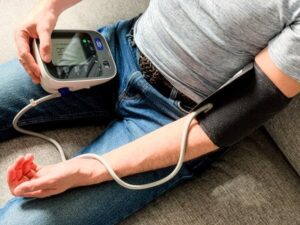
Identifying the origin behind secondary high blood pressure efficiently manages your condition whilst reducing any potential complications as well.
Taking proactive steps towards understanding this type of hypertension aids effective control over one’s blood pressure levels which reduces risks associated with it too.
MEET OUR CARDIOLOGY TEAM
- All
- Cardiology
- Cardiac Surgery
How High Blood Pressure Affects the Heart
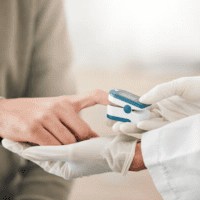
High blood pressure can have a detrimental effect on the heart over time. This may involve thickening of the cardiac muscle, impacting its ability to effectively pump blood around.
An increased amount of blood pressure can hurt and damage the walls inside blood vessels- increasing risk for developing potential cardiovascular diseases. This is why it is absolutely essential to recognize how high levels of blood pressure influence and impact overall heart health.
Heart Muscle Thickening
Due to high blood pressure, the heart has to work harder in order to pump blood throughout the body. This can cause an increase of thickness and growth in the left ventricle (heart muscle). Over time this thickening will weaken its ability for efficient pumping of higher amounts of blood.
Unfortunately there is no way currently known that reverses this enlarging process. Treatments tend more towards aiding symptoms while striving at preventing Development or problems arising from it..
Narrowed Arteries
High blood pressure can have drastic repercussions, causing arteries to narrow and increasing the chance of developing a heart attack or stroke.
Damage caused by this hypertension affects the vessels that transport oxygenated blood which in turn reduces its circulation raising threat levels due to atherosclerosis build-up in these arteries.
To mitigate such effects related with high blood pressure and diminish risks associated, effective management is key, preventative steps must be taken promptly if one hopes to avoid fatal consequences when it comes down managing their own health care!
Types of Heart Disease Linked to High Blood Pressure
High blood pressure can be linked to a range of different heart diseases, such as hypertensive heart disease, coronary artery disease and also the possibility of suffering from heart failure.
It is essential that one understands how high levels in their blood pressure could affect their hearts health and overall well-being.

Hypertensive Heart Disease
Hypertensive heart disease is a type of cardiovascular disorder caused by prolonged exposure to high blood pressure levels.
This increases the workload on the cardiac muscle and can lead to thickening, weakening, insufficient pumping capability as well as irregular beats in some cases.
High blood pressure has been linked directly with hypertensive heart ailment, making it essential for individuals to take steps towards controlling their vascular hypertension effectively.
Coronary Artery Disease
Coronary artery disease is a condition which can occur when the supply of blood to your heart gets narrowed or blocked as plaque builds up in the arteries.
High blood pressure has an impact on coronary arteries by making them rigid and decreasing their ability to permit good flow, Raising risk for experiencing a heart attack.
Heart failure
High blood pressure can damage the heart muscle and cause it to become weaker, reducing its ability to pump blood efficiently. This leads to fluid retention as well as a rapid heartbeat, both of which are signs of heart failure.
To keep cardiovascular health in check and minimize any chances for such conditions, controlling high blood pressure is essential. Unfortunately, if poor control over one’s blood pressure occurs then there will be greater risks posed towards developing cardiac diseases like Heart Failure.
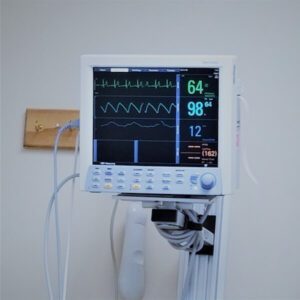
Thus monitoring appropriate levels through steady vigilance remains fundamental so that serious issues don’t arise due being unaware or negligent with respect to correct Blood Pressure Control Management (BPCM).
Risk Factors for Developing High Blood Pressure and Heart Disease

There are two types of risk factors associated with high blood pressure and heart disease: modifiable, which can be changed to reduce the chances of developing hypertension and non-modifiable such as age or hereditary traits. These risks cannot be altered but changes in lifestyle may help lower one’s chance for these conditions.
Modifiable risk factors
There are some controllable factors that can increase the risk of developing high blood pressure or heart disease, such as an unhealthy diet, inactivity, smoking and drinking alcohol and being overweight.
According to the Cardiology American Heart Association guidance on these risks should be modified in order to help reduce a person’s chances of getting hypertension or cardiac illness.
For instance modifying one’s lifestyle by changing dietary habits with healthy food choices, taking part in regular exercise programs, avoiding tobacco products may all lead towards keeping good levels for your blood pressure .
Non-modifiable Risk Factors
As age progresses, the chances of having high blood pressure can go up due to changes in arteries and arterioles becoming less flexible.
Individuals who have a family background of hypertension are also likely at higher risk since they could possess similar genetic components or behaviors as well as being exposed to related environmental conditions.
Individuals suffering from ailments like diabetes or kidney diseases are more prone to developing elevated levels of blood pressure which increases their susceptibility towards heart disease.
Symptoms and Warning Signs
Frequent check-ups are vital in detecting high blood pressure since it is often asymptomatic. High levels of this condition can have grave outcomes, including headaches, blurred vision and chest pain.
With regards to heart disease, indications such as chest discomforting sensation or tightness, exhaustion, shortness of breath should not be disregarded in order for the individual to obtain timely medical help which leads to more effective control over the illness.
High Blood Pressure Symptoms
Blood pressure must be checked regularly in those with high blood as they often show no symptoms. Symptoms, if present, can include headaches, blurred vision and dizziness along with chest pain.
To help prevent the effects of these elevated levels one should consider a healthier lifestyle while also keeping an eye on their numbers to avoid complications arising from untreated high blood pressure.
Taking active steps towards managing your own health is essential for both early detection and preventive care against possible severe issues associated with too much pressurization in our veins
Heart Disease Symptoms
Heart disease can bring on a range of symptoms, which vary depending on the type and severity. Typically they include chest discomfort, irregular heartbeats, difficulty breathing and fatigue as well as dizziness.
Some specific types present other signs. For example coronary artery disease may produce angina (chest pain) while congestive heart failure results in swelling of feet or ankles. To get an accurate assessment it is critical to see your doctor at once since treatments will be based upon that diagnosis.
It’s worth noting there are many varieties of this condition with their own unique markers - paying attention to even small changes could make all the difference when managing one’s health status!
Diagnosis and Treatment Options
For successful management and prevention of complications associated with high blood pressure and heart disease, early diagnosis is very important. Here we will look at the tests used to detect these conditions as well as treatment options available.
The evaluation for hypertension and coronary illness incorporates different exams just as modifications in lifestyle habits combined with pharmaceuticals that should be taken regularly by patients.
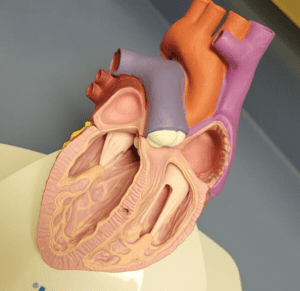
It’s paramount to identify signs quickly so that a suitable plan can be created according to individual needs regarding reducing their risk related either one or both diseases, i.e., high blood pressure /blood/ cardiac disorder .
Diagnostic Tests
It is essential to keep a consistent eye on your blood pressure in order to detect and manage hypertension. To help assess the presence of high blood or heart disease, you may be asked for regular tests such as having your pressure taken, taking some specific type of blood samples and undergoing imaging studies which can determine if there has been any damage done to the heart. Blood exams also allow us discover what might be off-balance inside our bodies due to elevated levels.
Lifestyle Modifications
A healthy diet and exercise regimen can help reduce the risk of heart disease by managing high blood pressure. By incorporating a balanced combination of fruits, vegetables, lean proteins, and whole grains into your daily meals you can lower one’s levels of blood pressure while routine physical activity works to maintain weight as well improve cardiovascular fitness.
Medications
High blood pressure can be managed using various types of medications such as thiazide diuretics, beta-blockers, ACE inhibitors and ARBs. These drugs work in different ways to reduce blood pressure by decreasing the amount of salt and water held within the body or by relaxing constricted vessels. It is essential that a person collaborates with their healthcare provider to ensure that they are following clinical practice guidelines while determining what type of medicine will work best for them when managing high blood pressure or heart disease symptoms related to hypertension. Blood Pressure Medicines come in several varieties so it’s necessary find out which ones provide an optimal approach for effective management of one’s condition
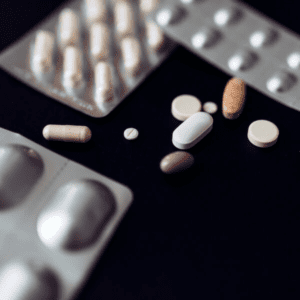
Prevention Strategies

Having a healthy diet, exercising frequently, and controlling stress levels are effective ways of preventing high blood pressure and heart disease. Taking these lifestyle measures can decrease an individual’s chances of having to face the consequences that accompany elevated blood pressure.
Making sure one eats healthily, gets sufficient exercise as well as manages their stress all work towards reducing the probability of developing both hypertension issues and any problems associated with it.
Healthy Diet
To help reduce the risk of heart disease and manage blood pressure, a diet full of fruits, vegetables, whole grains and lean proteins should be consumed. To these healthy food choices it is important to lower sodium intake while increasing potassium consumption in order to effectively regulate hypertension as well minimizing alcohol use.
Regular Exercise
Engaging in at least 150 minutes of moderate-intensity physical activity per week can help with keeping a healthy weight, decreasing the risk for heart disease and hypertension.
This regular exercise routine helps to burn calories as well as build lean muscle mass aiding in overall wellbeing.
Participating in activities such as: walking, running, swimming or cycling are great ways to positively influence blood pressure levels while also bettering one’s mental health, reducing stress whilst improving sleep quality too!
It is beneficial to find an activity that you enjoy so it becomes part of your normal everyday life.

Stress Management
Meditation and deep breathing exercises can be extremely helpful for managing stress levels, which in turn benefits cardiovascular health by lowering blood pressure.
Practicing these techniques on a regular basis helps to reduce anxiety, improve sleeping patterns and contribute positively towards overall well-being, making them a worthy addition to any lifestyle of good health.
Complications and Long-Term Effects
High blood pressure and heart disease can have serious long-term effects, such as strokes, chronic kidney problems, and a decline in mental functions. Knowing this allows individuals to make proactive changes that will help them control their high blood pressure levels and protect their hearts from Damage. Kidney diseases are included among the possible consequences of having hypertension along with cardiovascular occurrences plus cognitive deterioration.
Cardiovascular events
People with high blood pressure and heart disease are at an increased risk of experiencing dangerous cardiovascular events such as stroke or heart attack. This is because the elevated levels of blood pressure in their bodies can damage the arteries, reduce oxygenated-blood flow to crucial organs and create a chain reaction that puts them at heightened danger for these life-threatening ailments. The only way to lessen this likelihood is through controlling one’s own levels of hypertension combined with adopting healthy habits which will better protect against future medical emergencies related to impaired circulation from uncontrolled high blood issues.
Chronic kidney disease
High blood pressure can damage the blood vessels in the kidneys, which may lead to chronic kidney disease. When these vessels are weakened and narrowed, they lose their ability to properly filter out toxins from the bloodstream, potentially resulting in full renal failure if left unaddressed. To help stop this happening, monitoring and managing of one’s highbloodpressure is recommended as a preventive measure for keeping good levels of overall kidney health.
Cognitive decline
Studies suggest that high blood pressure has a negative effect on brain health, putting individuals at an elevated risk of cognitive decline and dementia. The importance of controlling one’s blood pressure is clear to help preserve the integrity of their brain vessels and avoid memory loss issues.
Summary
High blood pressure is an all-too common issue that can, unfortunately, lead to a range of serious health problems such as heart disease if left untreated. By recognizing the relationship between high blood and cardiovascular diseases To taking better care of your body through healthy habits and treatments from medical professionals we are able put ourselves back into control. Allowing us secure our future with healthier hearts.
FREQUENTLY ASKED QUESTIONS
It is essential to maintain optimal blood pressure levels in order to guard against conditions such as hypertensive heart disease, coronary artery disease and heart failure which are all directly correlated with high blood pressure. Controlling one’s blood pressure can help reduce the risk of these diseases.
Hypertension can be divided into two distinct types: primary and secondary.
Primary hypertension is a gradual process that develops over time without an identifiable cause, while in the case of secondary hypertension its onset is typically more sudden due to certain medical conditions or medications influencing it.
A major hazard for those suffering from elevated blood pressure is heart failure, and hypertensive cardiopathy being the principal cause of illness as well as death through high blood levels.
It can be stated that cardiovascular illnesses have an impact on one’s BP (blood pressure).
High arterial tension increases a person’s susceptibility to cardiac issues such as congestive heart diseases or severe myocardial complications stemming from uncontrolled hypertension.
Blood pressure that is consistently above 120/80 mmHg can increase the risk of cardiovascular problems, such as hypertensive heart disease. High blood pressure (also known as hypertension) left unmanaged may result in serious consequences to one’s health and wellbeing.
High blood pressure can be very detrimental to your health, increasing the risk of cardiovascular disease. Without proper care and control, it could damage arteries by creating blockages which then restrict the flow of blood leading to weak heart muscles and even coronary artery disease. This in turn puts individuals at higher risks for strokes or heart attacks if left unchecked.
